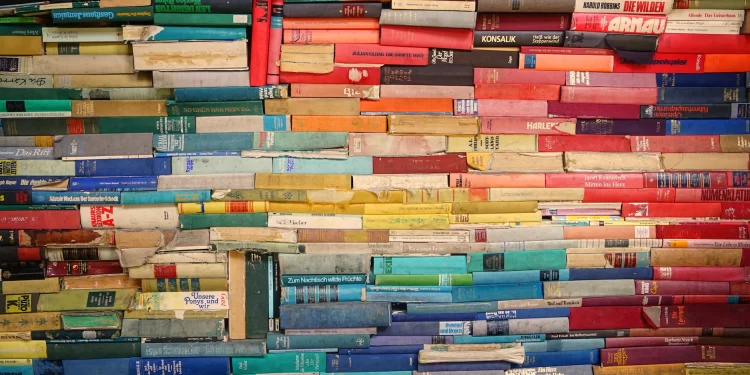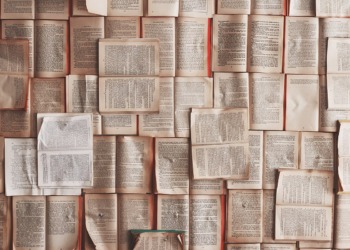Roald Dahl is viewed by many as the literary “evil genius” whose work, for decades, shaped the childhood of millions of kids worldwide. His books carry an edge, almost disturbing at times, rendering his storytelling impactful, captivating and timeless, or so it seemed.
Dahl’s publisher, Puffin, made the controversial decision to alter his books with hundreds of small changes after hiring “sensitivity readers” to ensure that the books “can continue to be enjoyed by all today”. This sparks the question: are we entering an age of sensitivity or censorship?
Dahl was a man of controversy. His views were misogynistic and racist. Women were “ridiculously easy” to manipulate, just like “puppets”, and Jews shared a “trait” that “provokes animosity”. Unsurprisingly, some of his inappropriate opinions slipped into his work and are now deemed problematic by his publisher, especially when read by children.
As such, Puffin decided to work with The Roald Dahl Story Company and the organisation Inclusive Minds to execute changes to render the books more children-appropriate for the 21st Century. Inclusive Minds is a collective of “sensitivity readers” that have “lived experience” and can provide “valuable input” in “sanitising” the works of authors.
The goal was to make minute changes that would maintain the edge, charisma and literary appeal of the books.
Yet, some of the changes have caused both outrage and comedic responses to the new, acceptable version of the books.
Is it really possible to keep the author’s true style and intentions while rewriting his text? Will it not lose its vigour, wit, vivacity, and vividness?
He’s not “fat”; he’s “enormous”
Hundreds of changes were made, deemed unnecessary by many. In “The Witches” alone, 59 changes were made.
In “Fantastic Mr. Fox,” the “murderous, brutal-looking” tractors were no longer “black murderous, brutal-looking” tractors.
“Fat little brown mouse” is no longer fat, and Augustus Gloop in Charlie and the Chocolate Factory is now “enormous” rather than “enormously fat”. Although portraying “mean” and “lazy” characters as “fat” by default can create stereotypes harmful to children, replacing fat with enormous will doubtfully remove this problem. Additionally, removing “fat” from a little furry animal is quite surprising: doesn’t fat also suggest cute, squishy and cuddly in small animals?
Another change seen as almost comic was this sentence from “The Witches”.
In the original edition, we read:
“Don’t be foolish,” my grandmother said. “You can’t go around pulling the hair of every lady you meet, even if she is wearing gloves. Just you try it and see what happens.”
Keep in mind, Witches wear wigs because they are bald and gloves to cover their claws. Isn’t the key message of the passage that touching a witch’s wig is a dangerous thing to do?
It’s not, according to the new edition:
“Don’t be foolish,” my grandmother said. “Besides, there are plenty of other reasons why women might wear wigs and there is certainly nothing wrong with that.”
Not only does this pull the reader’s attention away from the essential meaning of the dialogue, but it’s simply not a valuable addition to the text.
A columnist from the Washington Post highlighted the funny aspect of the edits by inserting additions along the same lines – sensitive and inclusive – to other widely read novels to show how comic and absurd they sound. One of these examples, “The Wizard of Oz”, depicts how such an edit would be funny, if not just completely useless:
“The Wizard of Oz”: It was all right when Dorothy’s house fell on and crushed that witch, but, in general, it is bad.
The edits went so far as to change a “screechy” voice to an “annoying” one.
More relatable?
The primary goal of both the publishing house and the sensitivity readers was to render these books more inclusive and relatable.
Let’s see how relatable that makes them.
In America, kids go to school fearing for their safety. They have to deal with bullies both in real life and online, depression and suicide rates are on the rise, and poverty is widespread.
In this world, is making children’s books seem more like sunshine and rainbows really going to make them seem more accessible and relatable?
Related Articles: AI vs. Artists: Who Can Claim Creativity? | Indigenous Peoples: Defending an Environment for All | France Wine Crisis: Changing Habits and Climates Are Curbing Viticulture
The public’s response to these changes was split, but many authors, readers, artists and even politicians were extremely opposed and outraged by the censorship.
“An affront to democracy”, “an exercise in priggish stupidity”, “absurd censorship”, comments and headlines read.
The overarching feeling is that censorship is unwelcome in this context. Suzanne Nossel, CEO of PEN America, a writer’s organisation, did not mince her words:
“People would rather deal with the work in its original, have to contextualise it, have to explain to their kids, you know, maybe even feel a little bit affronted, then have someone come in and scrub away anything that people might object to.”
Author Salman Rushdie called the revisions “absurd censorship”. He lived for years under constant threat of death from Iran’s Islamic regime following the alleged blasphemy of his novel “The Satanic Verses”. Still, he refused to change his work and believes that Dahl should be given the same right, especially considering how unnecessary these changes are.
Roald Dahl was no angel but this is absurd censorship. Puffin Books and the Dahl estate should be ashamed. https://t.co/sdjMfBr7WW
— Salman Rushdie (@SalmanRushdie) February 18, 2023
Even the Queen consort, Camilla, pronounced herself at her online book club, encouraging authors to “Please remain true to your calling, unimpeded by those who may wish to curb the freedom of your expression or impose limits on your imagination.”
Despite the direction adopted by the UK publishing house, Dahl’s publishers in the US, France and Holland announced that they would not follow the same direction, refusing to incorporate any of these changes. “We have never changed Roald Dahl’s writings before, and we have no plans to do so today” stated Gaillimard, Dahl’s French publisher.
Dahl was always very assertive and vocal when it came to publishers altering his work.
“I’ve warned my publishers that if they later on so much as change a single comma in one of my books, they will never see another word from me. Never! Ever!” he said.
Still, he had conducted alterations to his Oompa-Loompas in Charlie and the Chocolate Factory, changing their description after his original 1964 edition had already been published, to “de-Negro” them, as Dahl described it. They were no longer “black pygmies” taken by Willy Wonka from “the deepest and darkest part of the African jungle”.
In a conversation with the artist Francis Bacon, Dahl expressed his ubiquitous stance on the subject, to which Bacon responded, “there must be no changes to an artist’s original work when he is dead for any reason whatsoever.” Dahl replied, “I just hope to God that will never happen to any of my writings as I am lying comfortably in my Viking grave.”
Is it really justifiable for Dahl’s publishing house to alter his life’s work after his death?
A new Era of Censorship?
Although tweaking old books to adapt to contemporary norms has happened previously and will continue to occur, these edits feel almost like censorship, especially considering the relatively recent death of the author.
Is it morally acceptable to edit the works of dead authors, regardless of whether or not you have the legal right over their books? Is this going to lead to heavier censorship of books and less freedom of speech and expression?
In many parts of the world, censorship is a very prominent issue in the media, academic papers and writing in general. In India, for example, offence laws put in place have forced many writers to “self-censor for fear of legal or other trouble if they hurt sentiments, particularly around religious content”.
Should the UK, a democracy, promote censorship, especially coming from a private business, not even the state?
Indrapramit Das highlighted that the changes might lay out a “precedent” for the publishing industry (which is a private business) to alter author’s books “after they’re dead for marketability”
What if alterations to books become the norm and not the exception? We risk losing the historicity of books, freedom of speech for authors, and altogether erasure of ideas.
In the late 18th Century, an edition of Shakespeare’s work was altered to fit the norms of the time, as some passages were deemed unacceptable for a “gentleman to read to a lady”. Now, these concerns seem absurd.
In the future, the reason behind the censorship of Dahl’s work may seem just as irrelevant or old-fashioned.
Following the backlash and public outrage, Puffin will publish both the edited and original forms so “readers will be free to choose which version of Dahl’s stories they prefer.”
Was the censorship a marketing stunt, or are we paving the way for control of the media that will dictate what authors can and cannot write about, overshadowing the principle of free speech?
Editor’s Note: The opinions expressed here by the authors are their own, not those of Impakter.com — In the Featured Photo: Multicolour books. Featured Photo Credit: Robert Anasch.










